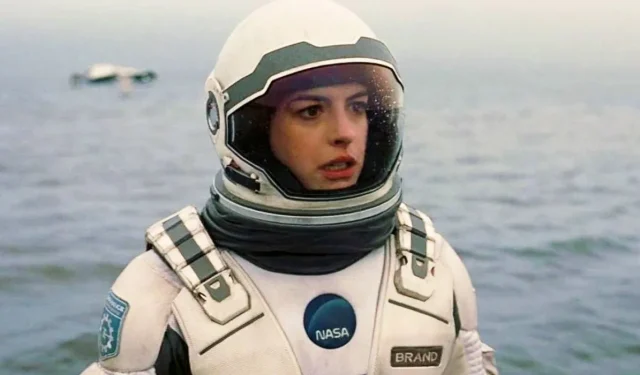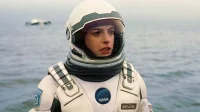Science fiction films exhibit a remarkable ability to stretch the limits of imagination; however, the most captivating narratives often ground themselves in scientific accuracy. Movies like 2001: A Space Odyssey and Interstellar are not only visually stunning but also receive accolades from astronauts and scientists alike for their faithful portrayals of space exploration.
Creating a compelling space-themed film requires a delicate balance between dramatic storytelling and scientific realism. Whether depicting historical astronaut missions or envisioning speculative futures, filmmakers can greatly enhance their narratives by incorporating authentic elements of space travel and its effects on human beings.
10 Moon (2009)
Moon Earns Praise from NASA
Despite its modest budget compared to other space films, Moon offers a profound narrative. Sam Rockwell delivers a gripping performance as he navigates a solitary lunar mining mission that takes an unexpected turn with the awakening of his clone.
Director Duncan Jones was pleasantly surprised to learn during a NASA lecture series at Space Center Houston that many of his innovative concepts for future space exploration were already being explored by the agency. Notably, NASA is investigating various lunar regolith-based concrete formulations for constructing sustainable habitats on the moon, minimizing transportation costs from Earth. (via Popular Mechanics)
9 The Martian (2015)
Ridley Scott’s Vision of the Near Future
The Martian showcases Ridley Scott’s talent for weaving compelling storytelling with stunning visuals. While his past films, such as Gladiator and Napoleon, faced criticism for historical inaccuracies, The Martian walks a fine line of scientific validity.
Although some elements stretch credulity, certain aspects were well-received by experts. Notably, aerospace engineer Dr. Robert Zubrin lauded the character portrayed by Donald Glover, appreciating his ingenious idea of harnessing Earth’s gravity to aid a rescue mission to Mars. This concept is rooted in sound scientific principles and reflects techniques used in NASA’s Voyager program. (via The Guardian)
8 Ad Astra (2019)
Ad Astra: A Blend of Myth and Science
Released amid a surge of space-themed films, Ad Astra deserves more recognition. The narrative, influenced by Joseph Conrad’s Heart of Darkness, intricately weaves themes of isolation and discovery reminiscent of 2001: A Space Odyssey.
Despite its occasional mythological flights, Ad Astra features moments that resonate with scientific accuracy. Dr. Nicolas Lee of Stanford University commended the realistic portrayal of Roy McBride’s resourcefulness in space and highlighted the film’s dynamic spacewalk sequences. (via Esquire)
7 WALL-E (2008)
Pixar’s Realism in Animation
Among Pixar’s illustrious works, WALL-E stands out as one of its most ambitious projects. Merging heartwarming characters with stunning visuals, this animated film explores speculative themes while subtly incorporating elements grounded in reality.
Professor James Hicks has noted the film’s keen depiction of the long-term physiological effects of space travel on humans, such as muscle atrophy and reduced bone density. Viewers might find it alarming to think that prolonged weightlessness could lead to behaviors similar to those exhibited by the characters in WALL-E upon returning to Earth. (via Variety)
6 2001: A Space Odyssey (1968)
Stanley Kubrick’s Timeless Classic
2001: A Space Odyssey remains a cinematic landmark that has profoundly influenced the science fiction genre. Even crafted before the lunar landing, it continues to be heralded as one of the most accurate portrayals of space travel ever created.
The film’s depiction of zero-gravity maneuvers and the vastness of space is frequently cited by experts as a credible representation. Notions of silence in the cosmos and the stark juxtaposition of time and distance resonate throughout the film, enhancing its authenticity. (via SFGate)
5 Solaris (1972)
Andrei Tarkovsky’s Exploration of Space and the Mind
Solaris, often seen as Tarkovsky’s answer to Kubrick’s masterpiece, delves deeply into the psychological impacts of space exploration, placing emotional and cognitive experiences ahead of grand visuals.
As humanity seeks longer missions beyond Earth, concerns about psychological effects from isolation, monotony, and stress are gaining ground. Solaris adeptly conveys these uncertainties and critiques the limits of human scientific comprehension. (via New Scientist)
4 High Life (2018)
Claire Denis Conducts Thorough Research for High Life
A departure from traditional space films, High Life presents a darker narrative that explores the more unsettling aspects of human nature, particularly as they relate to the complexities of long-term spaceflight.
Claire Denis consulted with scientists at the European Space Agency to ensure that her depiction of space journeys was as realistic as possible, even undergoing extensive training to grasp the nuances of astronaut preparation. While some elements are speculative, many details draw inspiration from actual scientific research. (via Science and Film)
3 Apollo 13 (1995)
A Gripping Recount of a Real-Life Crisis
Apollo 13 recounts the harrowing true story of the ill-fated lunar mission in 1970. The film excels in remaining tethered to reality, utilizing authentic transcripts from the mission as dialogue.
This dedication to historical accuracy does not come at the expense of scientific integrity; the film showcases the complexities aboard the spacecraft without oversimplification, making it both engaging and enlightening. Rather than resorting to sensationalism, Apollo 13 opts for a more genuine approach to storytelling. (via TIME)
2 First Man (2018)
A Realistic Depiction of Neil Armstrong’s Journey
Similar to Apollo 13, First Man chronicles a significant moment in space exploration—the Apollo 11 mission. Directed by Damien Chazelle, the film immerses audiences in the 1960s, capturing the historical context of this monumental achievement.
Staying true to the intricacies of the Apollo 11 mission, viewers can appreciate the correspondence between film sequences and actual landing footage, highlighting remarkable parallels. The filmmakers chose authenticity over grandeur, remaining faithful to the experiences of Neil Armstrong. (via TIME)
1 Interstellar (2014)
Christopher Nolan’s Deep Dive into Theoretical Physics
Interstellar is emblematic of Christopher Nolan’s filmmaking prowess, merging blockbuster spectacle with profound scientific exploration. The film adeptly intertwines speculative elements with established theoretical physics principles.
The narrative ventures into concepts that remain theoretically plausible, complicating efforts to gauge accuracy. Nevertheless, Nolan has been commended for his ability to distill intricate scientific ideas for a broader audience, particularly through its portrayal of black holes and time dilation rooted in credible scientific theories. (via TIME)
Sources: Popular Mechanics, The Guardian, Esquire, Variety, SFGate, New Scientist, Science and Film, TIME, TIME


